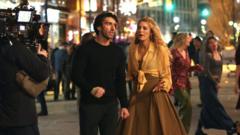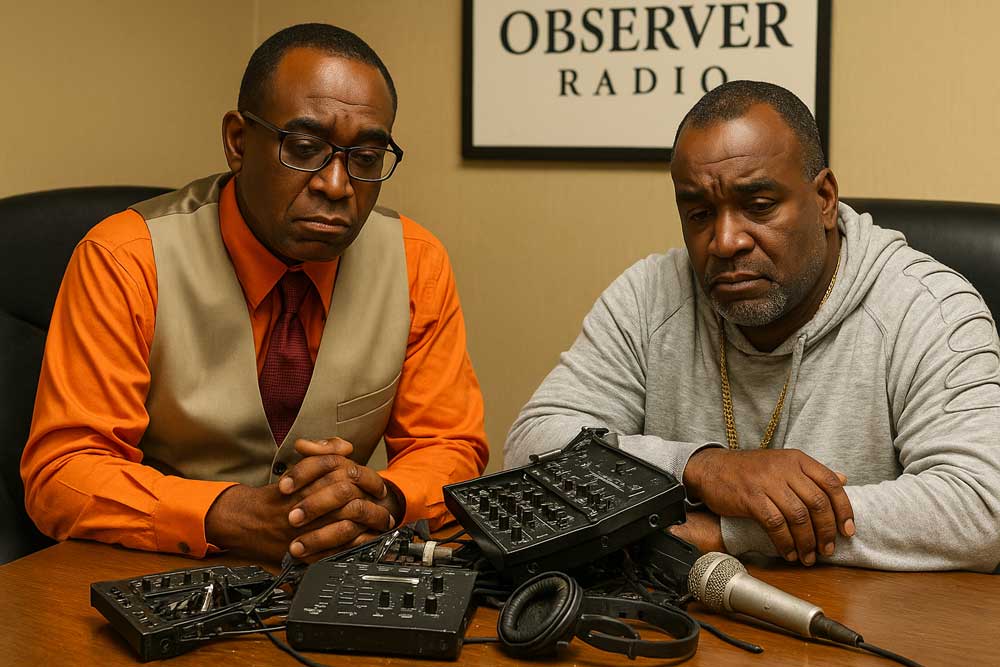In a Manhattan federal court, tensions flared as legal representatives for Blake Lively and Justin Baldoni squared off for the initial hearing in their highly publicized case. The film co-stars are embroiled in a legal battle following Lively's accusations against Baldoni, claiming sexual harassment and a malicious campaign waged against her. In turn, Baldoni has denied these allegations and filed a defamation suit against Lively.
The pair were not obligated to appear at the pretrial meeting, yet the atmosphere in the courtroom was charged during the hour-and-a-half session. Lively's attorney, Michael Gottlieb, urged that disputes should be confined to the courtroom rather than the media, accusing Baldoni's legal representation, led by Bryan Freedman, of making damaging public comments that could influence public perception of the case.
Freedman, in his defense, argued that his client, Baldoni, is the victim of reputational damage and that Gottlieb was attempting to silence him through a "gag order." He described the emotional and financial toll that the allegations have had on Baldoni.
The film "It Ends With Us," based on a bestselling novel by Colleen Hoover, garnered significant box office success but has been shadowed by these troubling rumors of discord between its stars. Judge Lewis Liman highlighted the media frenzy surrounding the case and suggested that if the trial were to play out in the public sphere, a re-evaluation of the trial schedule might be necessary to ensure impartiality amongst potential jurors.
An amended complaint submitted by Baldoni's team included a lengthy account of events related to the case and even introduced a website showcasing legal documents and related content. Gottlieb challenged the origins and funding of the website in court, emphasizing concerns over Baldoni's actions.
In a twist, Lively's camp indicated their intention to file an amending complaint that would involve additional individuals, amidst a prevailing narrative suggesting extensive connections across various parties linked to the legal tussle. Baldoni's legal team is also engaged in a libel suit against The New York Times, which allegedly published Lively’s civil rights claims.
As the case continues to unfold, the judge expressed the importance of managing the public narrative surrounding the legal proceedings, establishing that a protective order would be necessary given the notable individuals tied to the situation. Ultimately, both sides showed eagerness to move the case along, aiming for a resolution that could end this bitter dispute in the near future.
The pair were not obligated to appear at the pretrial meeting, yet the atmosphere in the courtroom was charged during the hour-and-a-half session. Lively's attorney, Michael Gottlieb, urged that disputes should be confined to the courtroom rather than the media, accusing Baldoni's legal representation, led by Bryan Freedman, of making damaging public comments that could influence public perception of the case.
Freedman, in his defense, argued that his client, Baldoni, is the victim of reputational damage and that Gottlieb was attempting to silence him through a "gag order." He described the emotional and financial toll that the allegations have had on Baldoni.
The film "It Ends With Us," based on a bestselling novel by Colleen Hoover, garnered significant box office success but has been shadowed by these troubling rumors of discord between its stars. Judge Lewis Liman highlighted the media frenzy surrounding the case and suggested that if the trial were to play out in the public sphere, a re-evaluation of the trial schedule might be necessary to ensure impartiality amongst potential jurors.
An amended complaint submitted by Baldoni's team included a lengthy account of events related to the case and even introduced a website showcasing legal documents and related content. Gottlieb challenged the origins and funding of the website in court, emphasizing concerns over Baldoni's actions.
In a twist, Lively's camp indicated their intention to file an amending complaint that would involve additional individuals, amidst a prevailing narrative suggesting extensive connections across various parties linked to the legal tussle. Baldoni's legal team is also engaged in a libel suit against The New York Times, which allegedly published Lively’s civil rights claims.
As the case continues to unfold, the judge expressed the importance of managing the public narrative surrounding the legal proceedings, establishing that a protective order would be necessary given the notable individuals tied to the situation. Ultimately, both sides showed eagerness to move the case along, aiming for a resolution that could end this bitter dispute in the near future.


















